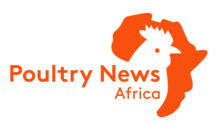South Africa’s poultry industry is currently under intensive examination following the Competition Commission’s decision to conduct a thorough inquiry of the country’s biggest chicken producers. The corporations under consideration are Astral, RCL, Country Bird, and Sovereign, which together account for approximately two-thirds of total chicken production in South Africa.
Their dominance has sparked worries about potential anti-competitive activity, market manipulation, and tactics that could hinder fair participation in the business. With chicken being a staple source of protein for millions of South Africans, the results of this investigation are critical for both producers and consumers.
The probe’s main issue is the poultry market’s highly concentrated structure. The main producers are vertically integrated, which means they not only process chicken but also have influence over other crucial sections of the value chain, including breeding stock, feed production, and distribution networks. This model offers them enormous control over the supply chain, potentially limiting the capacity of smaller and independent firms to compete successfully. The research seeks to determine whether these institutions create entry hurdles, limit fair competition, or result in activities that harm farmers and consumers.
The Competition Commission will conduct a thorough investigation into numerous crucial areas. Pricing practices will be reviewed to determine whether customers are paying inflated costs or if unfair pricing techniques are driving smaller companies out of the market. Access to critical inputs, like as feed and breeding materials, will also be examined to determine whether dominant enterprises’ dominance is being utilized to undercut competition. In addition, the Commission will investigate distribution channels, market access, and whether exclusive contracts or supply arrangements are being utilized to give large firms an edge while excluding smaller businesses.
The probe could mean the difference between life and death for tiny poultry growers. Many small-scale manufacturers have long complained about difficulties in obtaining reasonable inputs and equitable distribution channels. If the Commission discovers practices that impede competition, it may propose changes to level the playing field. This could involve promoting transparency in input pricing, enforcing legislation to eliminate monopolistic activities, or encouraging new market entrants. Such reforms may provide chances for small producers to expand and make a more meaningful contribution to national chicken production.
The investigation has the potential to benefit consumers as well. Poultry is South Africa’s most extensively eaten protein source, and market manipulation has a direct impact on households. If anti-competitive practices are identified and corrective steps are implemented, customers may benefit from lower costs, greater supply stability, and higher quality. Ensuring a more competitive environment could help safeguard customers from unjust pricing while also encouraging efficiency and diversity in the poultry industry?
The impact of the investigation extends beyond the chicken business. It underscores a prevalent global dilemma in the food industry, where a few huge businesses dominate supply networks. While such dominance can improve efficiency and stability, it also raises the possibility of market abuse, diminished competition, and inhibited innovation. The investigation in South Africa could thus serve as an important case study for regulators in other areas of agricultural and food production, emphasizing the need for continual surveillance and strong competition rules.
Looking ahead, the inquiry is expected to be extensive and its conclusions will carry far-reaching implications. The central questions will be whether the dominance of South Africa’s poultry giants amounts to market abuse, and if so, what corrective actions can restore healthy competition without destabilizing the industry. For farmers, consumers, and regulators, the results could reshape the poultry landscape for years to come. Ultimately, the findings may influence not only the future of South Africa’s poultry market but also broader debates about how to balance efficiency with fairness in critical food systems.



